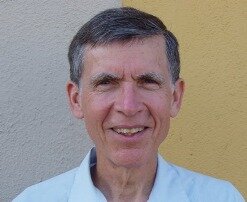LONG BEACH – An effort by David Cundiff to have his doctor’s license reinstated has suffered a setback, with an administrative judge agreeing there should be no re-examination of the original evidence – even if key portions are reportedly false. Cundiff maintains his license was revoked after a key witness gave false testimony, but efforts to have the case reviewed have failed.
by Joe Segura, Staff Writer Long Beach Press Telegram
David Cundiff MD
Attorney General Jerry Brown’s office has rejected Cundiff’s petition, and Administrative Law Judge Daniel Juarez concurred in a recent ruling. However, that decision will be reviewed Thursday by a California Medical Board panel, which gives a final determination on whether to accept the Brown-Juarez position.
Deputy Attorney General Klint James McKay said on Monday that the appeal for reconsideration of the alleged false testimony was not timely.
“There has to be finality to the case,” he said, emphasizing that it would be difficult putting a new hearing together after nearly 10 years.
Cundiff has submitted to the California Medical Board a Petition for Reconsideration of the Proposed Decision.
The Long Beach resident had his medical license revoked by the board on Sept. 11, 2000, and the matter was reviewed during an administrative hearing in January.
Cundiff once wrote a column for the Press-Telegram Lifestyle section, called “Ask the Doctor,” and had been a physician and instructor at County-USC Medical Center for 17 years. He lost his license after a patient died, following a decision not to continue administering the blood thinner Coumadin, because of a high risk of bleeding. The patient subsequently died of clots in his lungs.
However, McKay turned down Cundiff’s request to subpoena the original evidence package for review at the reinstatement hearing.
“The truthfulness … does not support any exception to res judicata” – the rule that the state Supreme Court more than 85 years ago validated, by stating “unequivocally that `it is settled beyond controversy that a decree will not be vacated merely because it was obtained by forged documents or perjured testimony,”‘ McKay wrote in his brief to the Medical Board.
“If Jerry Brown knew his name was on this, he’d do something about it,” Cundiff said.
Key testimony in 2000, Cundiff contends, was recanted by the deceased patient’s daughter, after Cundiff’s license had been revoked. She originally testified that her father did not have an alcohol problem.
Cundiff said the case turned on whether the patient was or was not alcoholic.
The physician believed the patient’s drinking history made him a bad candidate for the blood thinner medication, since alcohol triggers internal bleeding.
“I stopped the blood thinner Coumadin because, in my opinion, it carried too great a risk of serious or fatal bleeding in this patient with alcoholism, liver failure and anemia,” Cundiff recalled.
Prior to the administrative hearing, McKay said the January focus was geared for a review of rehabilitation factors – and not a rehash of the merits of the original case.
“The evidence has been heard before,” McKay said. “That’s the way the system works.”
Countered Cundiff: “As an agency of state government and not a court of law, the California Medical Board is not bound by these legal technicalities and can consider this evidence.”
More from my site
Tags: California medical board, Coumadin, Daniel Juarez, David Cundiff, Sham Peer Review










